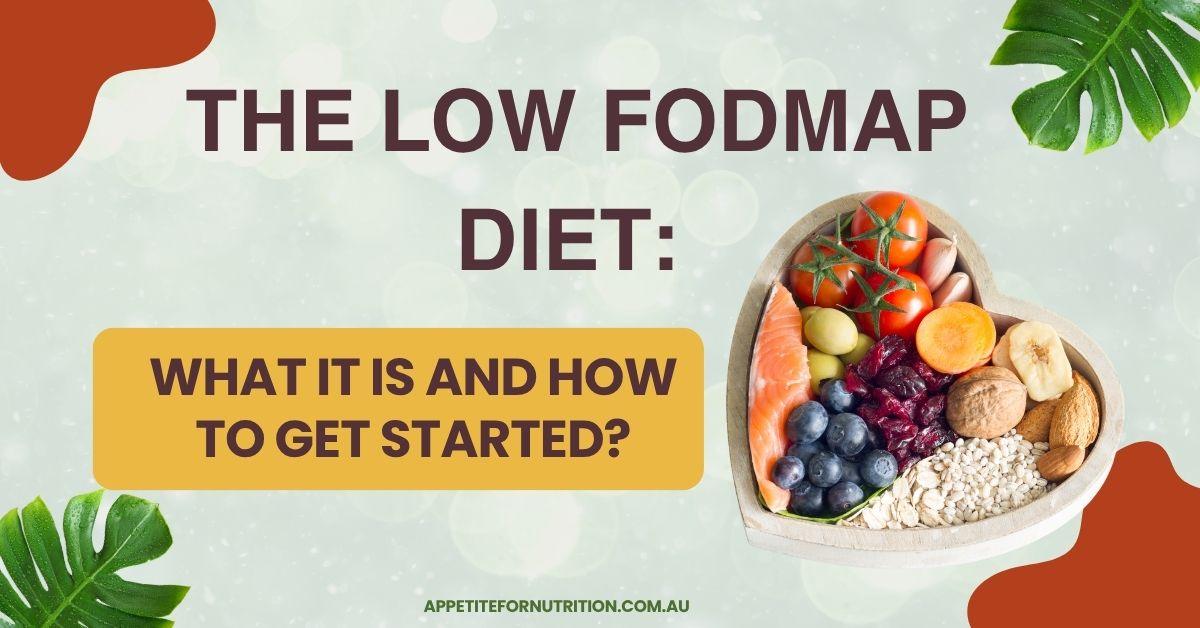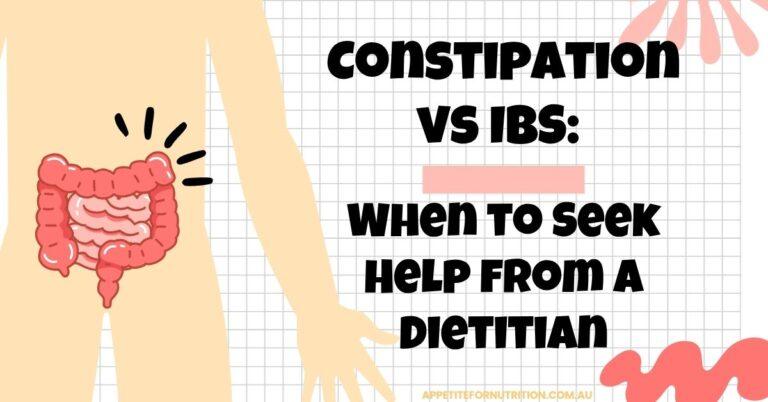
The Low FODMAP Diet: What It Is and How to Get Started
Understanding the Low FODMAP Diet
If you experience bloating, abdominal pain, or unpredictable toilet habits, your gut may be reacting to certain types of carbohydrates known as FODMAPs.
FODMAP stands for:
Fermentable Oligosaccharides, Disaccharides, Monosaccharides, And Polyols — short-chain carbohydrates found in many everyday foods.
For people with Irritable Bowel Syndrome (IBS), FODMAPs can be poorly absorbed in the gut, drawing in water and creating gas as they ferment — leading to symptoms like bloating, wind, or discomfort.
(You may like our Low FODMAP Meal Plan (7days)
How the Low FODMAP Diet Works
Developed by researchers at Monash University, the Low FODMAP Diet is a temporary, structured plan that helps identify which FODMAP groups trigger symptoms.
It has three phases:
Elimination – short-term removal of high FODMAP foods
Reintroduction – systematic testing of each FODMAP group
Personalisation – building a long-term, balanced diet that supports your gut health
Important: This diet should always be followed under the guidance of a qualified dietitian to prevent unnecessary restriction and ensure nutritional adequacy.
(Learn more Tips On Eating Out On A Low FODMAP Diet
Common High FODMAP Foods
| Category | Common Foods to Limit |
|---|---|
| Fruits | Apples, pears, mango, watermelon |
| Vegetables | Onion, garlic, cauliflower, asparagus |
| Dairy | Milk, yoghurt, soft cheeses |
| Grains | Wheat, rye, barley |
| Legumes | Lentils, chickpeas, beans |
| Sweeteners | Honey, sorbitol, mannitol, xylitol |
Low FODMAP alternatives include berries, oats, rice, lactose-free milk, firm tofu, and green vegetables like spinach or zucchini.
Benefits of a Low FODMAP Approach
Reduces bloating, discomfort, and irregular bowel movements
Improves quality of life for people with IBS
Helps identify personal food triggers rather than eliminating whole food groups
Encourages mindful eating and food awareness
Research shows that up to 75% of people with IBS experience significant symptom relief when following the Low FODMAP Diet under professional guidance (Monash University, 2024).
How a Dietitian Can Help
At Appetite for Nutrition, our NDIS-registered dietitians guide clients through every phase of the Low FODMAP process — safely and confidently.
We’ll help you:
Identify your individual triggers
Create balanced meal plans that prevent nutrient gaps
Adjust fibre and prebiotic intake to keep your gut microbiome healthy
Support long-term gut resilience and comfort
Your Next Step
The Low FODMAP Diet isn’t a lifelong plan — it’s a short-term tool to help you understand your gut better.
Our gut health dietitian team helps make it practical and sustainable, with supermarket swaps and meal ideas that fit your life.
👉 Book a consultation with a gut health dietitian today to start your personalised gut health journey — in-person across Melbourne, Brisbane, Gold Coast, Bendigo, Shepparton & Albury-Wodonga or via Telehealth nationwide.
(Also read: Healthy Takeaway Meals That Still Support Your Goals)
Frequency Asked Questions
Find quick answers to common questions
Our team of NDIS-registered dietitians helps clients make practical, evidence-based food decisions that fit their goals, lifestyle, and budget.
No. It’s designed mainly for people with diagnosed IBS or functional gut symptoms. If you haven’t been assessed by your GP or dietitian, get a medical check first.
The elimination phase should only last 2–6 weeks, followed by reintroduction and personalisation. Staying on it long-term can reduce beneficial gut bacteria.
Yes — but it requires careful planning. A dietitian can help you maintain adequate protein, fibre, and micronutrient intake while staying symptom-free.
If your gut symptoms continue after following the Low FODMAP Diet properly, your dietitian may explore other factors — such as stress, medication, or other intolerances.
Yes! The Monash FODMAP App is the most reliable resource for checking food lists, portion sizes, and updates. Your dietitian can show you how to use it effectively.



